This story by Trevor Keller first appeared on Wisconsin Life.
Tyler Slabey joined the Marines at 18 years old. It was September 2001. “I went through boot camp, went through my tank school. I was an M1-A1 tank crewman,” Slabey said. In 2003, he was deployed to Iraq, spending nine months in combat. Nine months that still haunt him today. “That was the single most terrifying thing I’ve ever done in my life. I lost my best friend there. I lost a lot of good, good people,” Slabey said. “It’s not an experience that I would wish on my worst enemy.”
Slabey retired from service in 2005, but the images of war were seared into his memory. He was diagnosed with post-traumatic stress disorder, and it consumed him. He became extremely isolated and angry. He says he rarely left his house. “I was just so full of hate and anger when I got out,” Slabey said. “It was either death or a better way.”
The path to a better way began in an unlikely place. Slabey was referred to Trinity Equestrian Center in Eau Claire. It’s a faith-based nonprofit that provides free horse therapy to veterans with PTSD. Slabey was skeptical. “I thought it was a joke, completely. Just to be completely honest, you know? How is a horse going to help me with this?” Slabey said.
The program pairs each veteran with a horse. Slabey’s teamed up with Sterling. A therapy session usually consists of the veteran doing a series of activities and exercises with the horse. Those can range from simple tasks such as grooming, to more complex tasks like creating an obstacle course for the horse to walk through. The entire session is monitored by at least two people, an equine specialist and a certified counselor. According to equine specialist Elizabeth Todd, they use the horse’s behavior to determine how the veteran is feeling.
“Whereas the veteran won’t say ‘I’m angry,’ they may say ‘Oh, my horse’s angry today’ or ‘My horse looks like it is angry today,’ and then that lets the mental health counselor ask the questions that they need to ask, as far as,
‘What’s going on? You know, what are we working on? What are you trying to process?’” Todd said. It’s just like a talk therapy session, only with a thousand-pound security blanket.
“We see a lot of that with veterans, is that they kind of get behind the horse and they’ll be brushing it, and they’ll be talking to the horse and share their story and kind of almost forget we’re there,” Todd said. “Something about these horses allows you to bring your guard down and really express yourself,” Slabey said. “How you truly feel.”
Slabey’s skepticism slowly morphed into trust. While he formed a bond with Sterling, the therapy helped him develop the tools to fight his daily battle with PTSD. “I don’t know if there was a definitive moment that was just that ‘A-ha’ moment. It was more of a retrospectively-looking at it and going, ‘Holy cow, that actually worked,’” Slabey said.
Trinity co-owner Toni Mattson says it’s been a pleasure to watch Slabey open up and learn to love again. “With Tyler it’s so obvious. It’s one of those where it just warms your heart because it’s like the ‘before’ and ‘after’ picture. It’s this transformation that’s happened. We here have been privileged to be even just a small part of that,” Mattson said.
Slabey says he’s 100% happier than he used to be thanks to Trinity, and Sterling. “I learned how to love again. When I first came home, I was cold and calculated, and he’s taught me to believe that love can exist for me,” Slabey said. “I can’t even put into words how much I appreciate this place and these people and this program. It’s nothing but love out here.”
 Passport
Passport




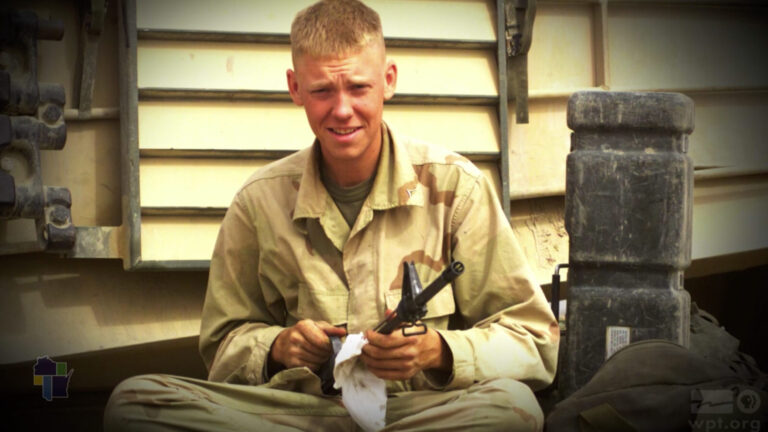

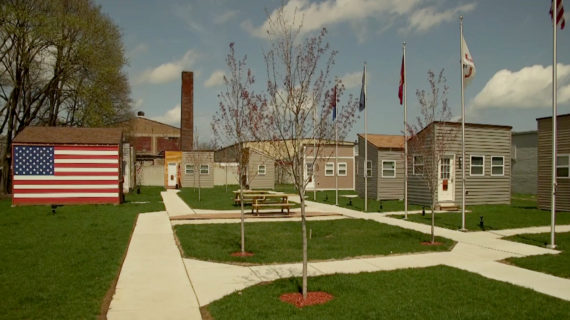
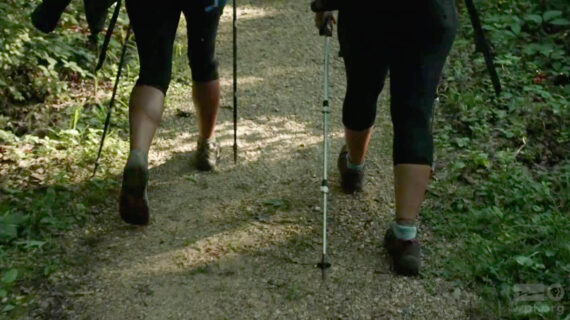
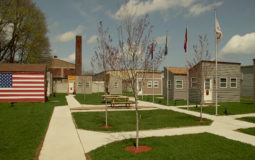
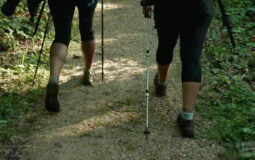
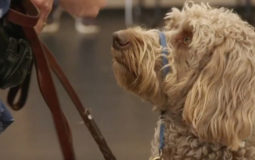
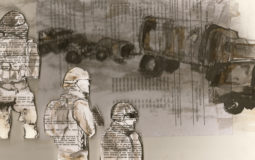

Follow Us